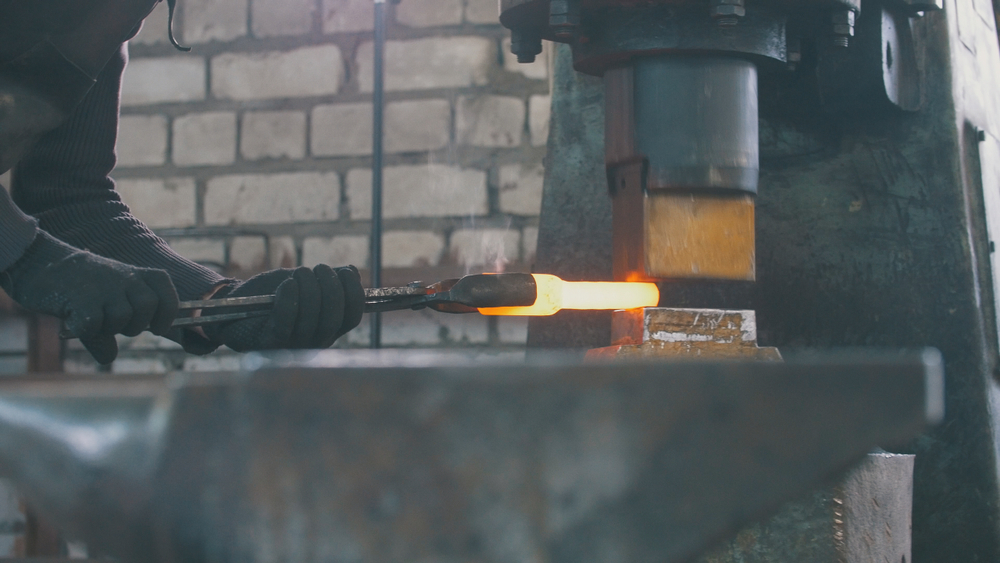
When it comes to working with metals, one of the key processes that can significantly impact the strength and durability of the material is heat treating. Heat treating is a method of altering the physical and sometimes chemical properties of a metal through heating and cooling. This process can have a profound effect on the strength, hardness, toughness, and overall performance of the metal. In this blog, we will explore how heat treating impacts metal strength and why it is such a crucial step in the manufacturing process.
What is Heat Treating?
Heat treating is a process that involves heating a metal to a specific temperature, holding it at that temperature for a specified period of time, and then cooling the metal at a controlled rate. The goal of heat treating is to achieve a desired microstructure in the metal that will result in the desired mechanical properties. Different heat treating techniques, such as annealing, quenching, tempering, and aging, can be used depending on the specific properties required for the metal.
How Does Heat Treating Impact Metal Strength?
One of the primary ways that heat treating impacts metal strength is by altering the microstructure of the material. When a metal is heated to a certain temperature, the atoms within the material begin to move more freely. This allows for the rearrangement of the atomic structure, which can help eliminate defects, dislocations, and impurities that weaken the material. As the metal is then cooled, the atoms are locked into a new, more organized structure, which can result in increased strength and hardness.
Another way that heat treating can impact metal strength is by controlling the grain size of the material. When a metal is slowly cooled, larger grains are formed in the material, which can result in decreased strength and toughness. On the other hand, rapid cooling, or quenching, can lead to smaller grains within the metal, which can increase the strength and hardness of the material. By controlling the cooling process during heat treating, manufacturers can tailor the grain size of the metal to achieve the desired mechanical properties.
Benefits of Heat Treating for Metal Strength
There are several key benefits of heat treating when it comes to enhancing the strength of a metal. One of the main advantages is the ability to increase the hardness of the material. By heating and cooling the metal in a controlled manner, manufacturers can significantly increase the hardness of the material, making it more resistant to wear, abrasion, and deformation. This can be particularly important in applications where the metal will be subjected to high levels of stress or wear.
Heat treating can also improve the toughness and durability of a metal. By controlling the microstructure of the material, manufacturers can reduce the likelihood of cracking, fracturing, or failure under load. This can be critical in applications where the metal will be subjected to impact or cyclic loading. Heat treating can also improve the fatigue resistance of a metal, making it more resistant to failure under repeated stress.
In addition to strength, heat treating can also enhance the machinability and formability of a metal. By altering the microstructure of the material, manufacturers can make the metal easier to machine, bend, or form without sacrificing its mechanical properties. This can be important in applications where the metal will need to be shaped or fabricated into specific components or parts.
Summary
Heat treating is a critical process in the manufacturing of metal components and products, as it can have a significant impact on the strength, hardness, toughness, and overall performance of the material. By altering the microstructure of the metal through controlled heating and cooling processes, manufacturers can tailor the mechanical properties of the material to meet the specific requirements of the application. From increasing hardness and toughness to improving machinability and formability, heat treating offers a wide range of benefits for enhancing the strength of metals. By understanding how heat treating impacts metal strength, manufacturers can produce high-quality, reliable products that will perform well in a variety of demanding applications.
Need Heat Treating Services in Gaston County, NC?
Looking to enhance the strength and durability of your metal components? Our expert team specializes in precision heat treating services that can transform the properties of your metals to meet your specific needs. Whether you require increased hardness, improved toughness, or enhanced fatigue resistance, our advanced heat treating techniques can deliver the results you seek. Contact us today to discuss your project and discover how our heat treating services can optimize the performance of your metal components.
